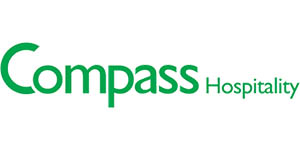The hospitality sector is set to experience significant changes with the enforcement of the Tipping Act 2023, which come into effect on 1 October 2024. This legislation, amending the Employment Rights Act 1996, introduces new mandates on how tips, gratuities, and service charges – collectively referred to as “tips” – are to be managed, processed, and distributed among employees.
Key Provisions of the Tipping Act 2023
- Full Distribution of Tips: The Act mandates that 100% of tips received, excluding taxes, must be distributed to employees. This ensures that employees receive the full benefit of the gratuities left by customers.
- Timely Payment: Tips must be distributed to employees by the end of the month following the one in which they were received. This prompt distribution helps in maintaining transparency and trust between employees and management.
- Workplace Distribution: Tips are required to be paid out at the workplace where they were earned, except for certain central services such as reservations and corporate functions. This stipulation aims to link the reward directly with the service provided.
- Fair Distribution: Employers must distribute tips fairly, adhering to a government-issued Code of Practice which provides guidelines but allows for flexibility to accommodate various business models.
- Inclusion of Agency Workers: Interestingly, the Act categorically includes agency workers among those entitled to tips, ensuring that all service workers are treated equitably regardless of their contractual status.
Administrative Requirements
To comply with the new law, businesses in the hospitality sector must develop and adhere to a clear code of practice regarding tipping. This code must be readily accessible to all employees, fostering an environment of openness and accountability. Additionally, businesses are required to keep a meticulous record of all tips received and distributed for a minimum of three years. These records not only serve as a financial account but also as a tool for resolving any disputes over tipping.
Employees now have the right to request details about tips collected and their personal share, enhancing transparency. This access to information is pivotal in ensuring that employees feel valued and fairly treated.
Developing a Fair Tipping Policy
The flexibility offered by the Code of Practice allows businesses to tailor their tipping policies to reflect their operational structure and workforce needs. However, it emphasises the importance of basing these policies on “clear and objective factors” such as:
- The role or work performed (e.g., front of house vs. back room)
- Basic pay and terms of engagement
- Individual or team performance
- Seniority and responsibility
- Length of service
- Customer intentions regarding the tips
These factors should guide the equitable distribution of tips, avoiding any potential discrimination which could stem from subjective decision-making.
Increased Scrutiny on Hospitality Businesses
With the new laws in place, the spotlight is on hospitality businesses to adhere strictly to these guidelines. Non-compliance could lead to increased scrutiny from regulatory bodies and the public, making it crucial for businesses to ensure their internal policies and practices are aligned with the new regulations.
Four Critical Areas to Monitor
- Internal Compliance Checks: Operators must ensure their tipping practices are transparent and compliant with the new law. This involves setting up robust systems for recording and distributing tips. Failure to comply can lead to claims of unlawful wage deductions, with potential legal consequences including fines or compensation payouts.
- Employee Communication: It’s vital that all staff are informed about changes to the tipping policy and understand how it affects them. Regular training and feedback sessions can help identify any concerns early and maintain trust within the team.
- Customer Transparency: With tipping practices under scrutiny, customers may inquire more about how their tips are being used. Staff should be prepared to explain the tipping policy clearly to enhance customer trust and satisfaction.
- Media and Public Relations: The change in law could attract media attention, similar to recent coverage of other hospitality businesses adjusting their policies. Having a clear communication strategy will help manage public perception and maintain your establishment’s reputation.
Leveraging Expert Guidance
For hospitality businesses, navigating these changes can be daunting. Capcon offers specialised consulting to help businesses adapt to the Tipping Act 2023. Our services include developing compliant tipping policies, training staff on new regulations, and implementing efficient systems for tip distribution and record-keeping.
Our expertise ensures that your business not only complies with new legal requirements but also optimises operational efficiency and staff satisfaction. With Capcon’s support, you can safeguard your business against potential pitfalls and enhance your service excellence, fostering a positive work environment and enhancing customer loyalty.
In Summary
The Tipping Act 2023 represents a significant step towards ensuring that employees in the hospitality industry are fairly compensated for their service. While it poses certain administrative challenges, the long-term benefits of improved staff morale and customer satisfaction are invaluable. With the right preparation and support from experts like Capcon, businesses can smoothly transition to these new practices, ensuring compliance and benefiting from a happier, more motivated workforce.
More information on distributing tips fairly (non-statutory guidance for employers) can be find on the GOV.UK website here.






















